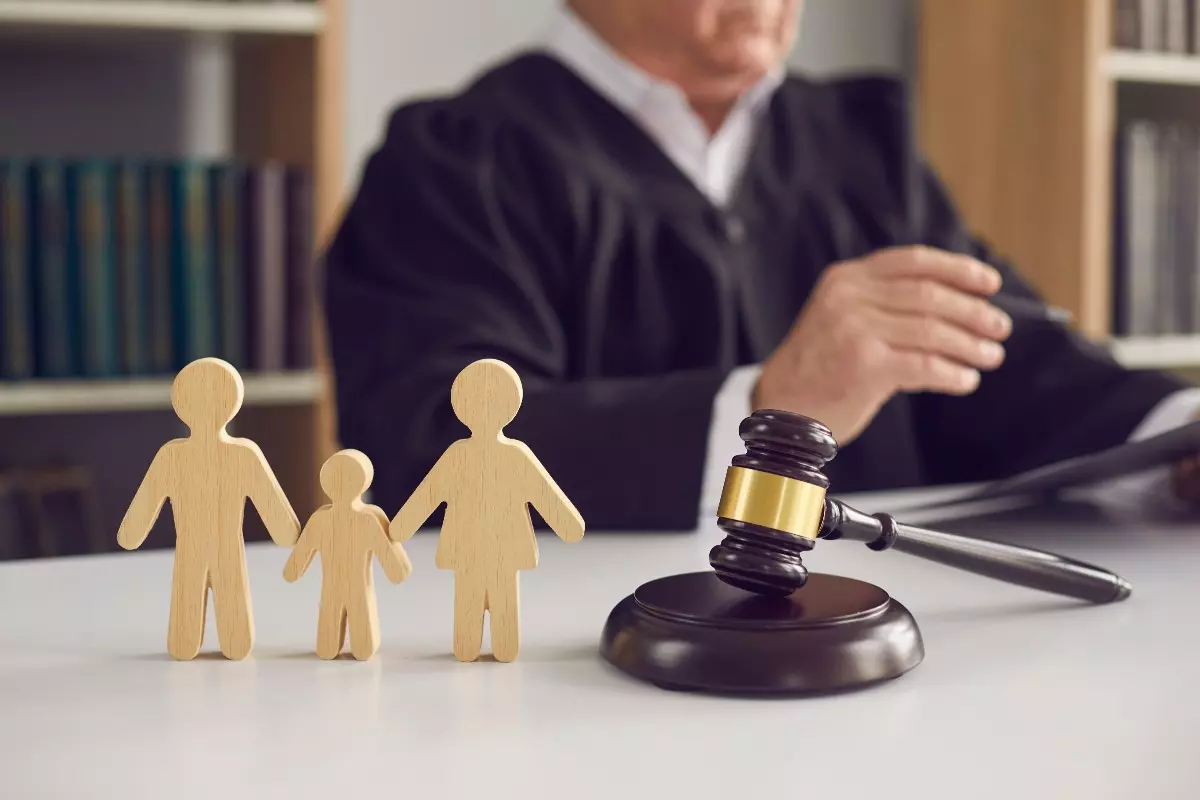What Happens When You Don’t Pay Child Support?
We all know that getting behind on bills of any sort results in unsavory consequences, but falling behind on child support payments will land you with more serious problems than a simple late fee. Because these payments are mandated by law, consequences for not making payments are severe. Failure to make child support payments can result in garnered wages, liens, and in some cases, even jail time.
How Many Child Support Payments Can You Miss?

While exact numbers vary by state, missing even one child support payment can result in being held in contempt of court. If no action is taken, either by making the past due payment or contacting the court, you will be called to appear before a judge. If this court date is missed, a bench warrant will be made for your arrest. That said, just one missed payment is a serious offense, and action will be taken against you swiftly.
How is Past-Due Support Collected?
All child support orders automatically include immediate income withholding. While you and the custodial parent may choose to make other arrangements for the method of payment, this still means that if one month of payments is missed, income withholding will automatically begin. After that, payments will be withdrawn like any other payroll deduction, such as income tax.
However, in cases such as self-employment, frequent job changes, or cash pay, where income withholding may not be a viable option, different actions will be taken to collect past due child support payments.
Child Support Liens

Liens are commonly utilized for past due child support. These liens can be placed on your home, any land you own, or other personal property like cars or trucks. The lien prevents the property from being sold, transferred, or borrowed against until the payments are caught up.
It will also be reported to credit bureaus, which may prevent approval on any loans you may wish to take out.
Liens do not generally result in immediate payment of past due child support but are enacted in the hope that the lien will be a sufficient incentive to rectify arrears. It should also be noted that child support liens do not require a court order to be put into effect.
Other Administrative Enforcement Actions
License Suspension
A court may decide to suspend licenses (driver’s, professional, or occupational) to satisfy arrears. This is generally not done in cases where a license is needed to earn income (delivery drivers, for example.) Passports can also be affected if more than $2,500 is owed. They will not be issued or renewed and can also be revoked in the case of a requested change or if the child support office obtains a warrant.
Retirement Fund Forfeiture

In general, anything that is considered a form of income is liable to be collected to satisfy back child support payments. This includes retirement funds, and depending on how much is owed, up to 65% of your retirement payments may be collected.
Additionally, unemployment benefits and tax refunds are also subject to collection. You will be notified in writing when this occurs, but much like with property liens, there is no court hearing necessary for these to take place.
Bank Asset and Property Forfeiture
While child support liens typically do not result in the liquidation of assets, in some cases where the court determines that other methods are not viable, property or bank account funds may be seized to satisfy back payments.
How Much Do You Have to Owe in Child Support to Go to Jail?
Jail sentences are often used as a last resort because the main goal is to acquire payment for the wellbeing of the children, and an incarcerated parent will be unable to make child support payments. However, if over $5,000 is owed, or if payments have not been made in over a year, you may be charged with a misdemeanor, and if over $10,000 is owed or payments have not been made in two years, you may be charged with a felony.
Jail Time for Child Support Arrears
A misdemeanor charge can result in up to six months jail time, while a felony charge can result in up to 18 months, plus steep fines.
What If I Cannot Afford Child Support?

If you are unable to make your child support payments, it is crucial to act quickly and notify the court as soon as possible. Proof must be provided that you cannot make the payments due to job loss, illness, or some other unforeseen circumstance.
It would also be in your best interest to make any child support payment you can, even if it is not the full amount. A display of effort will show that you are not willfully avoiding your responsibility. The judge may grant you reduced payments or even a brief pause in payments if this is done.
However, it is important to note that while the judge may reduce future child support payments, they will not forgive or reduce any past due payments. This is true even in the case of bankruptcy, as child support is one of the few debts that cannot be forgiven by bankruptcy.
If you are unemployed or only employed part time, the court may order you to participate in employment programs or refer you to services that can help you find full time employment in order to make full, timely child support payments.
Payment Plan Options
If you find yourself in a situation where you have past due child support or fear that you may not make future payments, contact your local child support office to set up a payment plan. They may work with you to create a monthly payment that satisfies both your current payments and any past due payments.
Once a payment plan is set up, and you are making timely payments, you will no longer be at risk for license suspension or the seizure of bank account funds or titled property. However, a payment plan will not remove any liens or prevent the forfeiture of tax refunds or retirement funds or the denial of a passport. Only becoming caught up on back child support payments will rectify these situations.